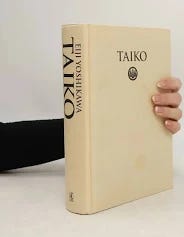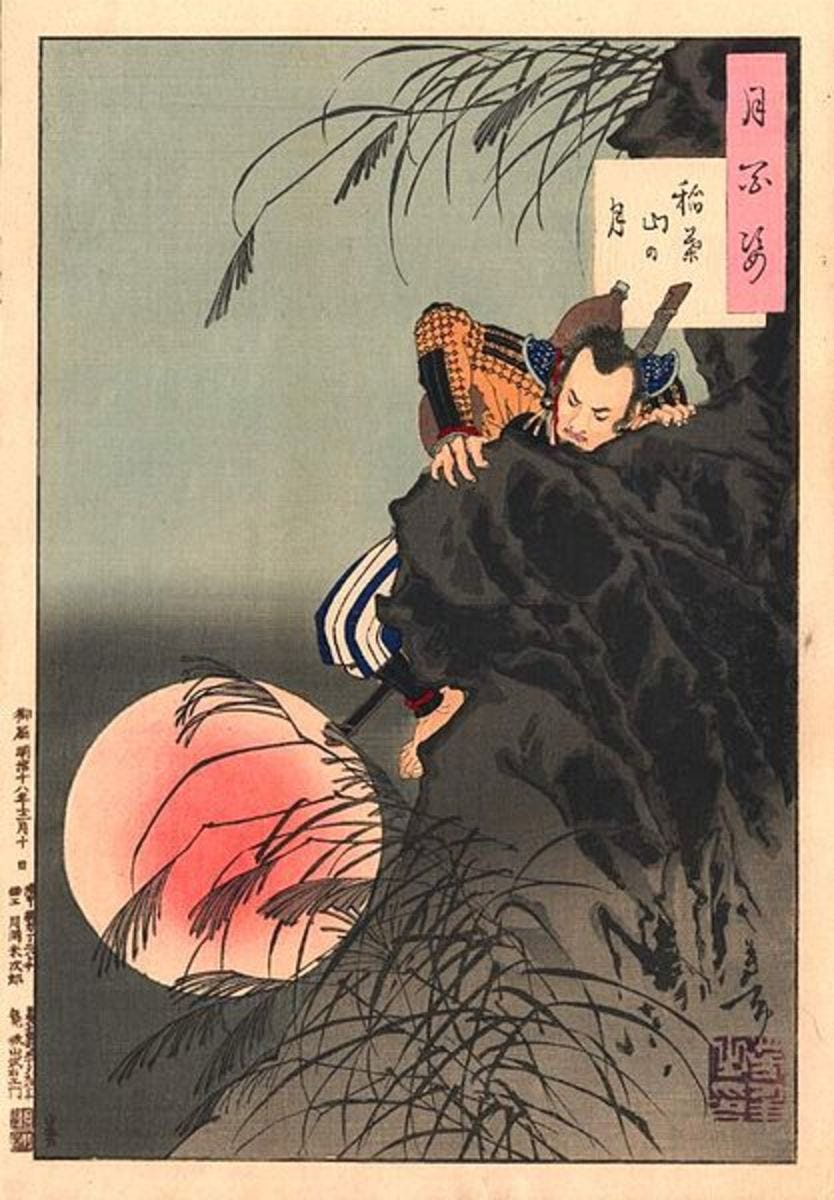Novels, Reading Recommendations and #Taiko
^Sleeping cat at a shrine in Nikko, this is the gate that guards the temple where the soul of Toyotomi Hideyoshi was enshrined!
As you might have gathered from my last two episodes down the rabbit hole (Wakashu and A burning temple), I’ve been feverishly re-reading Eiji Yoshikawa’s Taiko! If you are interested in Japanese history or just love a good historical novel, I highly recommend it! It’s gorgeously written and robustly translated, and as a person who often thinks all men look and sound the same, I found it surprisingly easy to parse out the 46789 characters in the book because they are written so distinctly and with such nuance!
There are lots of options on Abe Books or Ebay (FUCK YOU JEFF BEZOS)
It is surreal, reading something when I was 13, and now revisiting it as a 31 year old. When I was a teenager, the trials and tribulations that these characters went through felt like pure fiction. But now, having lived a bit more, I read through these stories and feel a pang of recognition. Ah, that’s what they were going through.
Taiko is a novel about the warring periods of feudal Japan, and specifically about Hideyoshi Toyotomi, who was born a peasant boy nicknamed ‘monkey’ for his appearance and how he rose to become the first ‘unifier’ of Japan. He was also an extremely consequential historical figure, having abolished slavery in Japan in 1590 and established the policy of sakoku (splendid isolation) which arguably spared Japan from the worst of European imperialism and colonialism.
Yoshikawa writes the young Hiyoshi (his childhood name) as a flagrantly undisciplined boy, who was precocious and full of tricks, who was sent to various monasteries and apprenticeships only to be eventually kicked out for his antics. He wanted to be a samurai, but in truly un-samurai-like fashion, he valued his life and had a disdain for blind loyalty and was very picky about whom he served.
In his late teens, he serves a warlord named Matsushita Kahei. Hiyoshi works hard around the house, but doesn’t take much to martial arts training because he thinks dying for blind loyalty is foolish. This offends the swordsmaster and his peers.
The night after the incident, he is called to see his master:
“The master has asked for you. Go through the rear garden so that you won’t be seen.”
“Huh? The master? Well, I suppose he’s heard about what happened today.”
“The disrespectful things you said were bound to reach his ears. … He may carry out the execution himself.”
“Well, then, I’ll run away from here. I don’t want to die over something like this.”
“You’re talking nonsense!” He grabbed Hiyoshi’s wrists. “If you ran away, I’d have to commit seppuku. I’ve been ordered to bring you along.”
“I can’t even run away?” Hideyoshi asked artlessly.
Nohachiro made Hiyoshi walk ahead of him, and he kept a firm grip on the hilt of the sword. White gnats swarmed in the gathering darkness. The light from lamps inside spilled out onto the veranda of the library, which has just been sprinkled with water.”
“I’ve brought Monkey.”
“Monkey.”
“Yes, my lord.”
“It seems that a new type of armor is being made in Owari. It’s called domaru. Go buy a set. It’s your home province, so I presume you’ll have no trouble moving around freely.”
“My Lord?”
“Leave tonight.”
“Where to?”
“To where you can buy domaru armor.” Kahei took some money from a box, wrapped and tossed it in front of Hiyoshi. Hiyoshi looked back and forth between Kahei and the money. His eyes filled with tears that rolled off his cheeks and onto the backs of his hands.
“You don’t have to be in a hurry to bring back the armor. Even if it takes several years, find me the best possible set.” Then he said to Nohachiro “Let him out by the rear gate quietly before the night is over.”
Hiyoshi felt a chill creep over him. Here he had expected to be killed for running afoul, but now the chill came from his reaction to Kahei’s sympathy—his sense of gratitude—and it penetrated to the very marrow of his bones.
“Thank you very much.” While Kahei had not spelled out what he had in mind, Hiyoshi had understood.
His quickness bewilders the people around him, Kahei thought. It’s only natural that this breeds resentment and jealousy. He smiled bitterly and asked aloud, “Why are you thanking me"?”
“For letting me go.”
“That’s right. But, Monkey…”
“Yes, my lord?”
“If you don’t hide that intelligence of yours, you’ll ever succeed.”
“I know.”
…
Hiyoshi’s nose was stopped up. He bowed to Kahei again and again.
That night he left the Matsushita house.
Turning to look back, he vowed. I won’t forget. I won’t forget.
Wrapped up in this man’s great kindness, Hiyoshi wondered how he could best repay him. Only one who was always surrounded by brutality and ridicule could feel another’s sympathy so intensely.
Someday… someday. Whenever impressed by something or overwhelmed by events, he repeated this word like a pilgrim’s prayer.
Once again he was wandering like a homeless dog. The Tenryu was in flood, and when he was far away from human habitation, he felt like crying out at his loneliness, and the unknown fate that awaited him. Neither the universe nor the stars nor the waters could give him an kind of sign.
(pp. 94-95)
There is something extremely contemporary and timeless about this scene. The rude awakening to the ways of the world, the unchangeable nature of that world especially to people who are ‘different’, yet a renewed resolve to survive and to move forward. The kindness of strangers. The quiet terror of being young, standing at the edge of the unknown, unsure of what the future had in store for you. Someday. Someday.
For me, even the act of transcribing this scene onto this post feels unexpectedly meditative. In ancient times, people meticulously hand-copied sutras as a form of spiritual devotion. In its own way, this novel feels like a strange sutra to me.
Hideyoshi eventually finds a lord he admires and who appreciates him back in the form of Oda Nobunaga. He also evolves to become a more tactless man, who sometime uses his unassuming appearances and perceived foolishness to his advantage. He is said to be cheerful and humorous, and very difficult to offend—a virtue I feel that I can learn from.
Have you ever felt the same while reading a novel? Like it penetrated right through you into that bank of memories—those moments that you experienced alone, except, this time, someone else seems to understand it. The novel to me is an antidote to shame. Oh, I’m not the only one.
I hope this was more interesting than boring! I might keep sharing these little tidbits—random reflections and fragments from obscure historical novels. (I will tag them with #Taiko so you can avoid for your own sanity) Stay tuned, and thanks for being here for my thoughts!Stay tuned and thanks for witnessing my thoughts!







